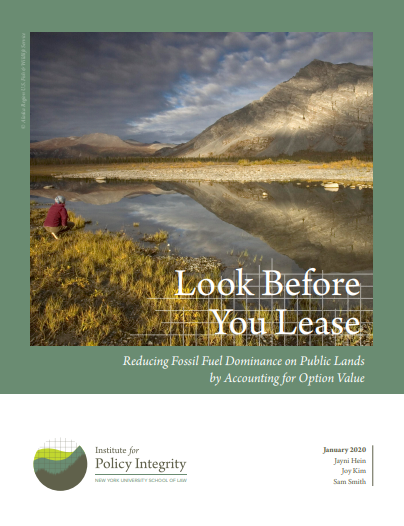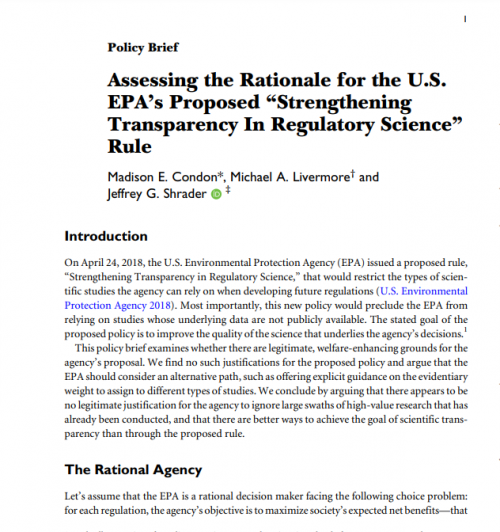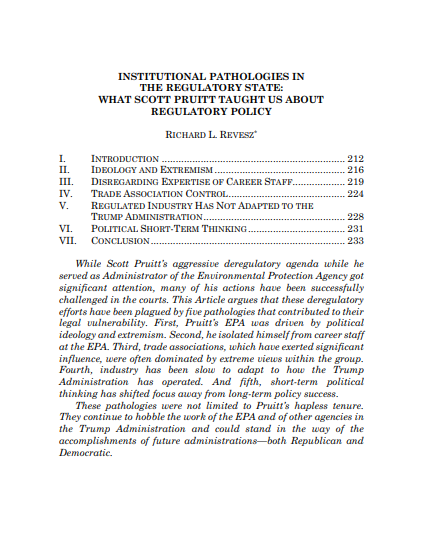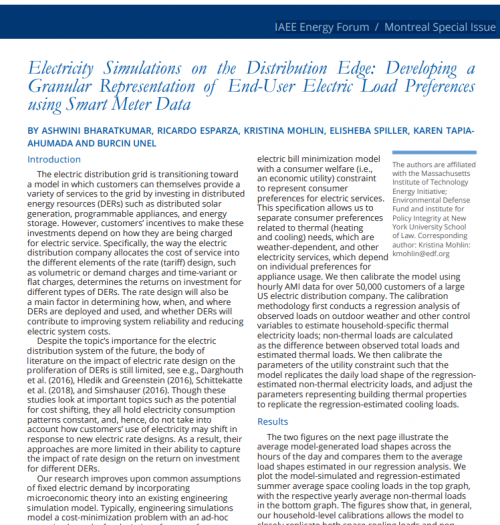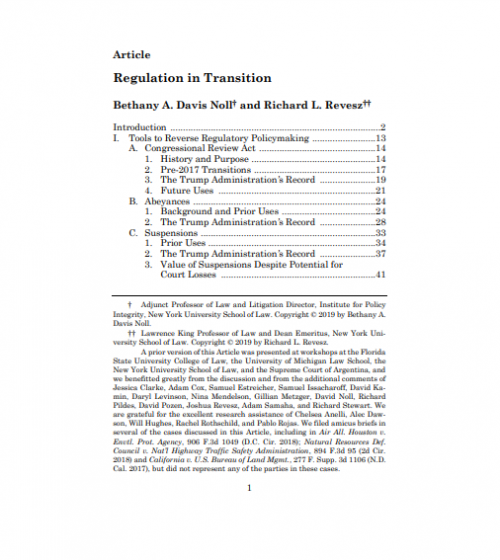-
Look Before You Lease
Reducing Fossil Fuel Dominance on Public Lands by Accounting for Option Value
While the Trump administration’s goal of “energy dominance” has increased the public lands available for oil and gas development, no effort has been made to modernize the leasing system, even in the face of climate change. Our report explains how option value—which accounts for the informational value gained by delaying leasing decisions—can and should be factored into the Bureau of Land Management’s land use planning processes. Accounting for option value at multiple stages of the land use planning process would significantly improve BLM’s public lands stewardship, better protect the environment, and regain some of the economic and strategic advantages it has ceded to private developers. The report also describes case studies where BLM’s failure to consider option value has led to costly litigation and missed opportunities.
-
Assessing the Rationale for the EPA’s Proposed Regulatory Science Rule
The U.S. Environmental Protection Agency (EPA) is considering a new policy that would prohibit the agency from issuing regulations that rely on studies whose underlying data are not publicly available. While the EPA claims it is pursuing this policy in the interest of transparency, we argue that such a prohibition would greatly hinder, rather than help, the rulemaking process and would likely result in undesirable regulatory outcomes that fail to maximize economic welfare.
-
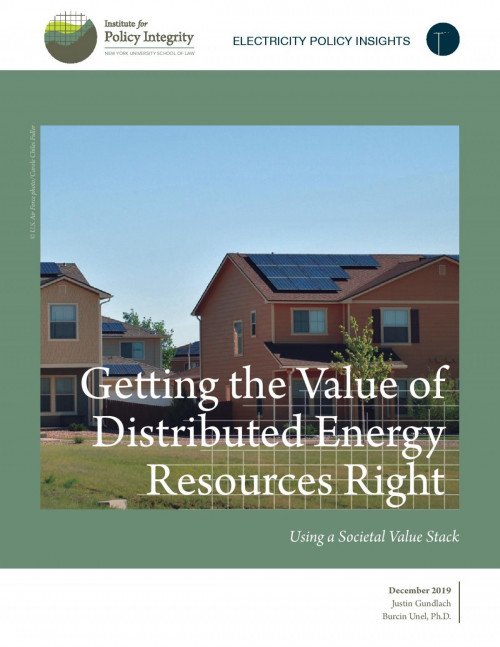
Getting the Value of Distributed Energy Resources Right
Using a Societal Value Stack
Our report notes the growing presence of distributed energy resources, like solar panels and energy storage installations, and explains how they should be compensated for providing electricity services valued by utilities and their customers. Currently, 40 states use net energy metering programs to compensate DERs. We describe a promising alternative, “value stacking,” which better reflects DERs’ value, and provide suggestions for how to implement this approach.
-
State Nuisance Law and the Climate Change Challenge to Federalism
Two legal questions must be answered before the plaintiffs can proceed to the merits of their cases. First, can one bring state nuisance suits for damages caused by interstate pollution? Second, if such claims can be brought, are they nevertheless preempted by federal law? This Note will demonstrate that there is significant legal precedent for allowing state nuisance suits concerning transboundary pollution and no basis for removing the current cases to federal court. It will then argue that courts should not find federal law preempts nuisance lawsuits against these defendants
-
Institutional Pathologies in the Regulatory State
What Scott Pruitt Taught Us About Regulatory Policy
While Scott Pruitt’s aggressive deregulatory agenda while he served as Administrator of the Environmental Protection Agency got significant attention, many of his actions have been successfully challenged in the courts. This Article, published in the Journal of Land Use & Environmental Law, argues that these deregulatory efforts have been plagued by five pathologies that contributed to their legal vulnerability.
-
Electricity Simulations on the Distribution Edge
Developing a Granular Representation of End-User Electric Load Preferences using Smart Meter Data
The electric distribution grid is transitioning toward a model in which customers can themselves provide a variety of services to the grid by investing in distributed energy resources (DERs) such as distributed solar generation, programmable appliances, and energy storage. However, customers’ incentives to make these investments depend on how they are being charged for electric service. Despite the topic’s importance for the electric distribution system of the future, the body of literature on the impact of electric rate design on the proliferation of DERs is still limited. Our research improves upon common assumptions of fixed electric demand by incorporating microeconomic theory into an existing engineering simulation model.
-
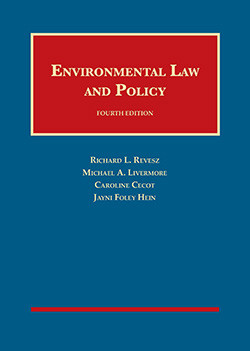
Environmental Law and Policy, 4th Ed.
This casebook emphasizes environmental policy, as well as the structure and details of the federal environmental statutes. It focuses students’ attention on how tradeoffs between environmental goals and social goals are resolved in different and difficult contexts. The book has been updated to reflect new developments in the law of natural resource management, water pollution, and climate change.
-
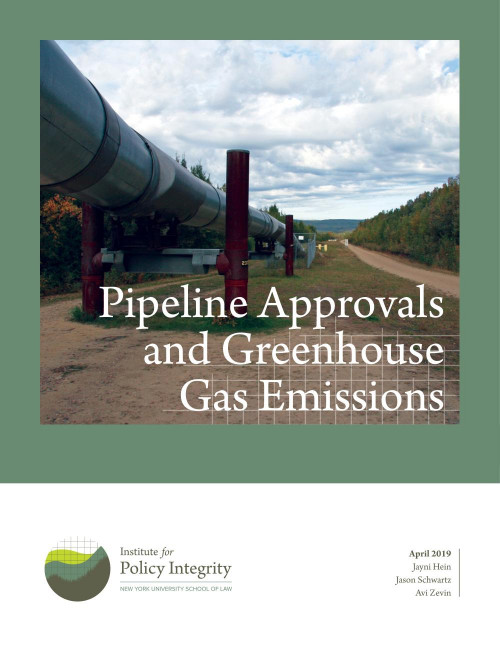
Pipeline Approvals and Greenhouse Gas Emissions
In light of growing public awareness of the environmental effects of pipeline projects, the Federal Energy Regulatory Commission (FERC) has faced competing pressures regarding how to balance the need for new natural gas pipelines with their environmental consequences. Concerns about greenhouse gas (GHG) emissions and resulting climate change effects have become a flashpoint in the debate. Our report examines the legal context surrounding FERC’s evaluation of the environmental impacts of proposed interstate natural gas pipelines. We look at FERC’s obligations under the Natural Gas Act and the National Environmental Policy Act, as well as potential improvements the agency can make to its analyses to better inform policy makers and the public about the impacts of proposed projects.
-
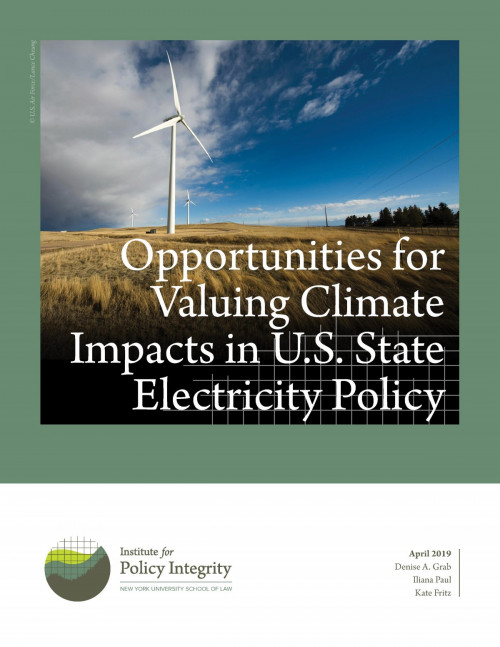
Opportunities for Valuing Climate Impacts in U.S. State Electricity Policy
With an absence of federal leadership on climate change, many states have worked to reduce greenhouse gas emissions on their own, often by incorporating a broader range of considerations into electricity policy. Our report assesses the potential to expand the valuation of climate damages in state electricity policy using Social Cost of Carbon metrics. We examine existing statutes and regulations in all 50 states to identify opportunities for valuing climate impacts around the country.
-
Regulation in Transition
This article, published in the Minnesota Law Review, identifies a new trend in aggressive regulatory rollbacks and argues that it is likely to become an enduring feature of American politics. Rather than stick to the typical deregulatory playbook, President Trump has made aggressive use of other instruments that had not previously played a significant role. Through these strategies, the Trump administration was able to reach a far greater proportion of regulations finalized during Obama’s presidency than would have been possible under prior practices. In the current climate, aggressive rollback strategies will lead to an important reconceptualization of the Executive Branch, in which future one-term presidents are unlikely to see a significant portion of their regulatory output on important matters survive and the incentives that presidents face in fashioning their regulatory policies will be significantly different. The changing incentives will affect a broad set of decisions, from transition planning for an incoming administration to the timing of regulatory actions relative to a president’s reelection campaign.
Viewing recent projects in Publications

